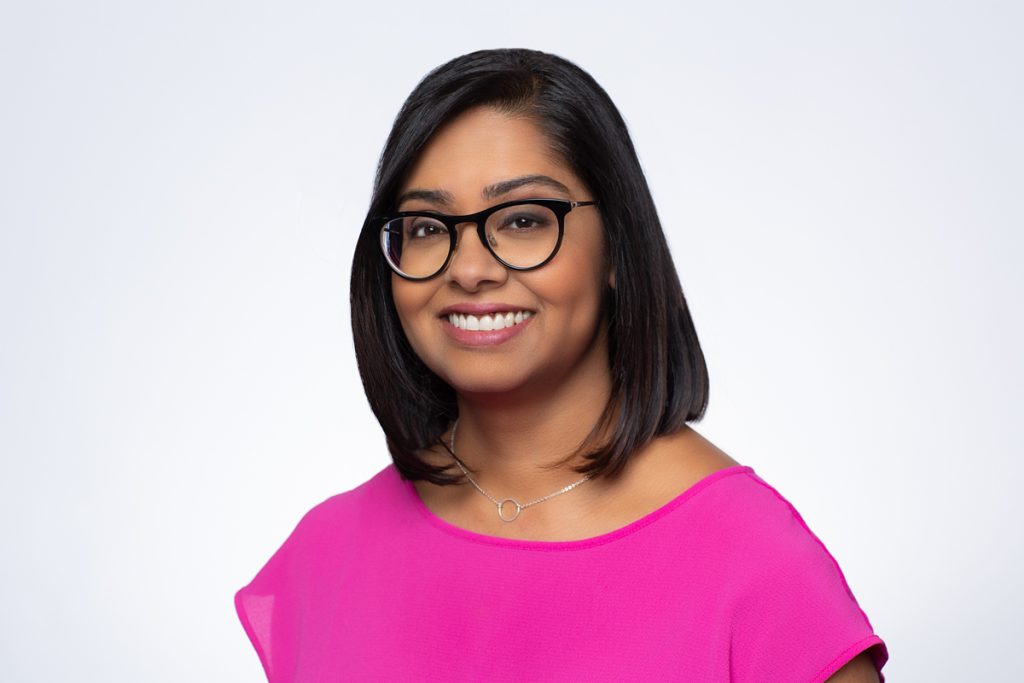INTERVIEW WITH ANU MENON
1. You have held many impactful leadership positions throughout your distinguished career. What do you love most about your current role as the Executive Director of Oasis for Girls?
First of all I love the mission and vision of the organization.Oasis is one of the last organizations exclusively serving girls of color in San Francisco. Our girls deal with economic insecurity, racism and sexism on a daily basis but Oasis is a safe space where they can learn together and thrive.
We are meeting girls where they’re at a critical age and helping them deal with the issues they’re facing while empowering them to be changemakers in their communities. All in the space of three powerful afterschool programs. Secondly, with the ED role in particular I enjoy having a varied job (each day is something new!) and being able to think big about the goals and future of Oasis. I have a great team and board so I feel like we can think big.

2. Tell us about your background. Where did you grow up and how did your childhood shape your journey?
I was born and raised in the Los Angeles area. My parents are Indian immigrants. I feel like straddling two cultures (Indian and American) helped me understand what it’s like to be both an outsider and an insider. This influenced my career focus on making sure that people of color and low-income folks (esp. women and children) not only have the resources they need to thrive but also have their voices heard at tables of power. I was exposed to different parts of society and encouraged in my passion for public service.
3. What are some of the biggest challenges facing young girls today?
At Oasis we serve under-resourced girls of color in high school. Today’s social and health climate has highlighted the deep inequities that our girls face. With the fallout from the pandemic they are not just struggling with getting back into the groove with school and learning loss, they are facing family job losses, housing issues, food insecurity and of course significant mental health challenges. What I find amazing is the resilience and bravery with which the girls approach these issues. They are shining lights and give me hope for what the future holds.
4. What was your educational journey like? How did what you learned shape your life?
I attended excellent public schools in the Los Angeles area. I was particularly influenced by my high school, a humanities magnet school that really focused on critical thinking, intensive writing and progressive thought and analysis of issues. I then went to Stanford and majored in Social Anthropology with a minor in Latin American Studies. Stanford was an amazing experience as I was pushed intellectually in so many ways and met fantastic friends and mentors who have deeply influenced and supported me. I was and continue to be fascinated with culture and it’s influence on human behavior and trajectories so that part of my education is still quite vivid in my mind. I thought I wanted to work in international human rights law so I received my Masters in International Relations at Johns Hopkins and my law degreee at UC Berkeley. After law school I ended up staying local in San Francisco and focusing on racial justice and women’s issues. For me education is a journey rather than a destination. I was able to learn and grow profoundly in each of these settings and the people, exposure and modes of thinking and analysis were immeasurably helpful.
5. What would you like to accomplish in the next 10 years?
There are so many deeply painful and disturbing issues in the world yet so much innovation, grit, hope and perseverance in human kind. I’d like to keep building on my work and community to make deeper connections and impact.
6. In your opinion, what attitudes are crucial to success?
The first is gratitude. I think it’s important to appreciate what is beautiful in the world even in the midst of a difficult situation and thank people for their contributions. Next is practicality – there are ups and downs and failures in work and life. I truly believe that the perfect is the enemy of the good so taking a practical and realistic approach to work is very helpful. Try something, see what happens and iterate. There’s no need to be paralyzed by perfection.Third trust your team – people are experts in their fields so trust your peers to make thoughtful decisions and be there for them for constructive feedback and support. And with that be bold, ask the questions no one else is asking. challenge the status quo as needed and be a champion of positive change.
About Anu Menon
Anu Menon is the Executive Director of non-profit group Oasis for Girls. Anu’s prior leadership roles include: Associate Director of the City and County of San Francisco’s Department on the Status of Women,
Community Engagement and Development Director at Help a Mother Out, Director of Operations and Admissions at Presidio Knolls School, Consultant for Zimmerman-Lehman, and Racial Justice Project Fellow for ACLU of Northern California. Anu is a graduate of Stanford University, earned her MA from Johns Hopkins University and JD from the University of California, Berkeley.
